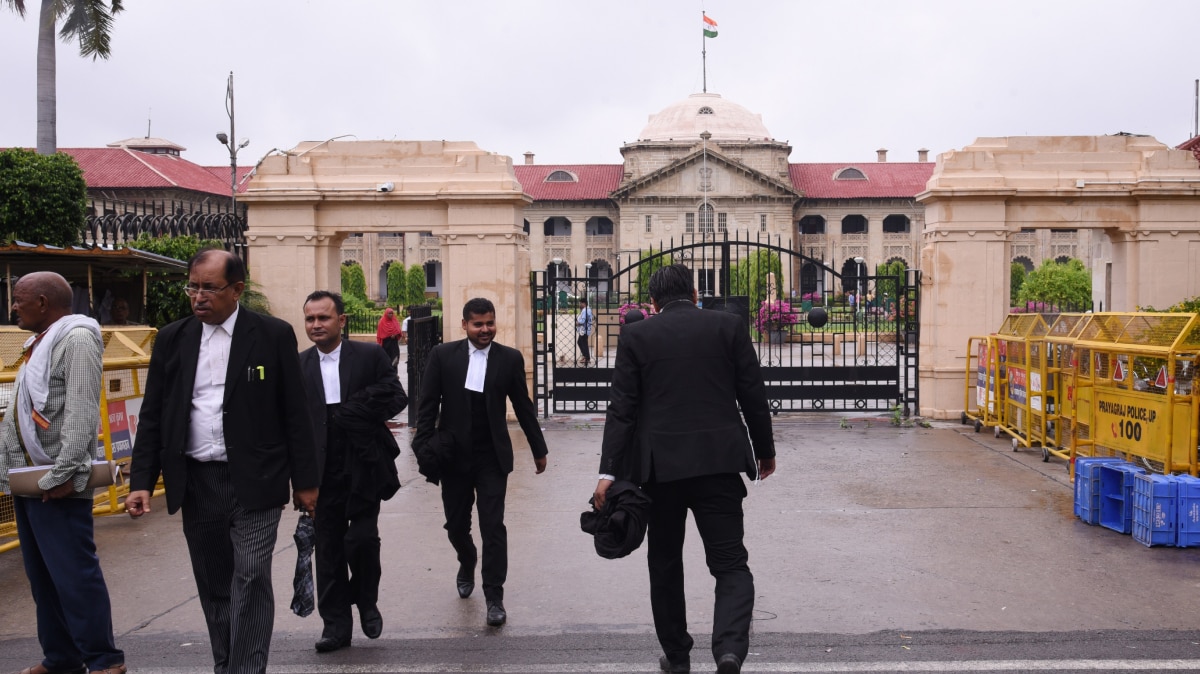The Allahabad High Court in a recent order refused to quash cases of Dowry death and cruelty (Section 498-A) against a man who claimed that the deceased woman was just a live-in partner and they were not legally married. The court while refusing any relief to the man said, "to attract provisions of Section- 304-B and 498-A of I.P.C., it is sufficient to show that victim woman and accused husband were residing as husband and wife at the relevant point of time."
Section 304-B deals with Dowry death and Section 498-A deals with cruelty by husband or relative of husband on a married woman.
The high court dismissed the man's petition against a Prayagraj sessions court order that rejected his plea for discharge in a dowry death case of his alleged live-in partner.
Why Court Denied Relief?
The man moved the court arguing that the deceased woman was just a live-in relationship, and no marriage had occurred between them. He further claimed that the deceased woman was earlier married with one Rohit Yadav and later on she has started living with applicant in live-in relationship without obtaining divorce from said Rohit Yadav and thus, the deceased is not legally wedded wife of applicant and therefore the provisions of Section - 304-B I.P.C. are not attracted against applicant.
The court noted that in the FIR, it was alleged that after sometime of marriage of deceased woman with Rohit Yadav, tha accused man molested her and the deceased was divorced by her husband Rohit Yadav and after that the parents of applicant have told that they would accept her as wife of accused man and marriage of deceased woman with the accused man has taken place through court but later on she was harassed by him and he demanded money from her and caused her death.
"Thus, there is clear averment in the first information report that marriage has taken place between deceased and applicant. It is not disputed that at the time of incident, she was residing with the applicant. Even, otherwise the question whether deceased was legally wedded wife of applicant or not cannot be decided in these proceedings under Section - 482 Cr.P.C," the order noted.
What Supreme Court's Judgment Says On Such Cases?
The high court order cited the Supreme Court judgment in the case of Reema Aggarwal vs Anupam And Ors 2004 wherein it was held that a man who cohabitates with such woman, in the purported exercise of his role and status as "husband" could not be taken out of from the purview of Section 304B or 498A IPC.
It further cited a Chhattisgarh High Court judgement in case of Mohitram vs. State of Chhattisgarh, where it was held that the intention of legislature behind inserting the provisions of Section-304-B I.P.C. was that husband and his relatives, who are responsible for the dowry death of a woman should be brought into mischief of dowry death whether the marriage in question was valid or not.
"It was observed that in order to attract provisions of Section - 304-B and 498-A of I.P.C., it is sufficient to show that victim woman and accused husband were residing as husband and wife at the relevant point of time. In the instant case, for the sake of arguments even if it is assumed that the deceased does not fall within the ambit of legally wedded wife, there is ample evidence on record that applicant and deceased were residing together as husband and wife at the relevant point of time," the high court said.
Court said that at this stage, a mini trial cannot be held and the Court can shift and weigh the evidence for limited purpose of finding out whether or not a prima facie case against the accused is made out or not.
"Where material placed on record discloses grave suspicion against the accused, which has not been properly explained, the Court will be fully justified in rejecting application for discharge. The Court is not to hold mini trial by marshalling the evidence,” the order noted.


